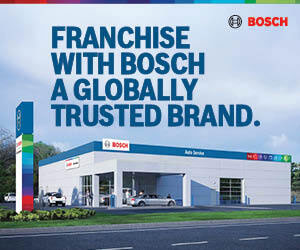How Franchisee Peer Groups Can Increase Franchisee Engagement & Performance

Peer groups, also called Franchise Performance Groups or Peer Performance Groups, are a critical franchise system business tool, particularly for mature brands looking for ongoing ways to support their franchisees.
Among other benefits, peer groups can help franchisees interact and stay committed to the brand, hold themselves accountable for hitting goals, maximize networking and sharing of best practices, and close the culture gap between newer and tenured franchisees. But surprisingly, based on speaking with franchisors from the more than 1,200 brands we’ve worked with, fewer than half have peer groups in place today.
1) What are peer groups?
Peer groups typically consist of three to five franchisees (unit owners) of a particular brand who meet regularly with a structured format to discuss best practices related to operations, finances, marketing, and other topics. Meetings, typically held with some frequency (quarterly), allow these franchise owners to share and receive honest feedback, support, ideas, and guidance from their peers. It also gives these and other franchisees an opportunity to compare their business to others in the organization, and make choices with support from others who have shared similar experiences with the brand.
Franchisors take different approaches to peer groups:
- Voluntary vs. assigned (how the group participants are recruited)
- Expected vs. opportunistic (related to the launch environment, i.e., reactive vs proactive)
- Situational (assigned for franchisees needing more help)
- Conditional (most often they are voluntary, but sometimes can become a path for performance for franchisees who are out of compliance or a condition for other terms, or a workout or recovery improvement plan)
2) Why do you need peer groups?
Peer groups are a recognized and respected tactic used by franchise brands to facilitate internal knowledge sharing and invigorate their system. This is a best practice for “enlightened” franchise systems that want to truly leverage the collective knowledge and experience of their franchisees to improve unit results and brand performance.
In many cases, franchisors implement new programs with the intention of adding value for all (or most) of their franchisees, but often, it’s hard to create programs that have an impact on a system’s more experienced, high-achieving franchisees, who have already figured out how to be successful. Peer groups can fill that gap by providing:
- Opportunities for franchisees to learn from each other’s real world experiences
- Structured networking time to maximize the benefits
- Bridging culture gaps between tenured and newer franchisees
- Motivation for underperforming franchisees to get back on track and/or in compliance
3) Pros and cons of peer groups
As you’re contemplating whether to implement peer groups in your franchise system, consider the following pros and cons.
Pros
1. Mature-stage franchisees get additional support. This is the next level of learning for franchisees who have been in the business for a while. They have achieved success and are looking for more; they want to continue to grow and have proven themselves to be leaders. Or they’ve been in the system for a long time and have not adopted the more current approach to the brand and standards. Peer groups can offer a new way for a franchisor to positively influence the situation by providing an opportunity for franchisees to help each other and to leverage their collective knowledge for their own individual benefit and, ultimately, for the brand.
2. Peer groups provide value to existing franchisees. Peer groups don’t take a tremendous amount of money or time to implement, but they do provide tremendous educational value to your franchisees—far beyond what you can provide with existing people and resources. Peer groups are a point of leverage for the franchisor to get more benefit from the existing structure and add value to the franchise owners directly.
3. Corporate staff learn from franchisees too. Enlightened franchisors recognize there is more knowledge in the system beyond the support and best practices they directly provide. When peer group participants share ideas with each other, the corporate office gets the benefit of those best practices too. The relationships and knowledge sharing will build institutional knowledge over time, which in turn, minimizes risk when there is corporate staff turnover. Peer group participants can generate a wealth of documented best practices that are available for the brand over time.
4. Brand leadership gets the credit! Franchisees appreciate your willingness to offer additional support and opportunities to make their businesses more successful and, in turn, they are more satisfied and loyal to the brand. The results over time reach beyond the unit-level economics into other areas, which deepens the personal franchisee/franchisor relationships and appreciation.
5. They can be used as a recruiting tool. Having peer groups in place for your franchisees should be communicated and embraced as a competitive advantage. It lets new franchise candidates know your brand is mature and sophisticated, and that you’re serious about helping your franchisees succeed, using all means and approaches to support them.
Cons
1. They might learn things you don’t want them to know. Sometimes, franchisees come up with ideas or tricks to work around the system that are not consistent with brand standards. In a peer group setting, they may share these “tips” or ideas for working around the system with others. Participants can get very candid and honest; sometimes people learn things that weren’t intended to be shared, and confidentiality may be tested. It’s important to know and expect that a range of ideas will be shared.
2. Unintended outcomes. For example, you may have a struggling or troubled franchisee join a peer group to get advice on how to improve business or get into compliance, but the advice from the peer group is to sell the business—not what you intended or expected. Peer groups are made up of people, and like all people they are sometimes unpredictable. However, while difficult outcomes can occur, selling may be the right decision for the franchisee in those circumstances or situation. Be open to new ideas and creative approaches from the groups.
3. Your peer groups can lose momentum. Your peer group participants invest meaningful time, money, and energy into the group. However, if not handled carefully, the group can fizzle out after only a few meetings. Franchisees are much less likely or willing to put the same amount of commitment into a group a second time around. Momentum is easy to lose in peer groups, and issues that create one very bad meeting can change the trajectory if mishandled. It’s easier to maintain momentum than to restart. You can help prevent peer groups from losing momentum by giving the program plenty of structure and facilitation—especially in the beginning—to make sure the groups work well and the meetings continue to provide value. It’s Important to include a meeting evaluation process and measure group responses and results using a participant survey tool. This way you have a chance to notice and repair any damage if things go wrong.
Kay Wasserman, co-founder of Franchise Peer Performance Groups (FPPG), notes that, “Critical elements missing from peer groups often include clear expectations, commitment, structure, and accountability. Based on our experience, research, and feedback from franchise networks, we’ve learned that peer groups need a solid foundation to be successful. It’s tough to hold someone accountable if they don’t know the expectations.”
4. Your peer group program dies a slow and painful death and stops functioning.
The real risk here is that if you launch and fail to maintain an effective peer group program, it will die over time or change into something you did not intend, and you lose credibility as the franchisor by abandoning another program. It’s best to focus on maintaining and committing to this program as a long-term solution, and include the franchisees and explain their role in maintaining its effectiveness. This is a true collaboration and the responsibility has to be shared and explained and reminded from time to time.
Making it happen
Implementing peer groups doesn’t have to be hard, but it does have to be planned thoughtfully with long-term goals in mind to be effective. To reap the benefits of peer groups, franchisors must understand why, when, and how to build a peer group program from the ground up.
“Increasing Franchisee Engagement Through Peer Groups” is a free resource that walks you step-by-step through how to implement effective, structured peer groups that encourage participation, learning, and actionable results. It includes more tips, an implementation checklist and timeline, and sample meeting formats. You can download the workbook here.
John Francis (aka Johnny Franchise) is a franchise advisor, speaker, and consultant. Having been both a franchisee and franchisor, he has a deep understanding of the issues both face. He says franchising is in his blood: his parents turned their family haircutting business into a 1,000-salon franchise empire. Learn more here or call 612-868-0745.
Eric Stites is founder, CEO, and Managing Director of Franchise Business Review. For more information about its services, visit the FBR website or call 866-397-6680.
Share this Feature
Recommended Reading:
| ADVERTISE | SPONSORED CONTENT |
FRANCHISE TOPICS
- Multi-Unit Franchising
- Get Started in Franchising
- Franchise Growth
- Franchise Operations
- Open New Units
- Franchise Leadership
- Franchise Marketing
- Technology
- Franchise Law
- Franchise Awards
- Franchise Rankings
- Franchise Trends
- Franchise Development
- Featured Franchise Stories








 The franchise listed above are not related to or endorsed by Franchise Update or Franchise Update Media Group. We are not engaged in, supporting, or endorsing any specific franchise, business opportunity, company or individual. No statement in this site is to be construed as a recommendation. We encourage prospective franchise buyers to perform extensive due diligence when considering a franchise opportunity.
The franchise listed above are not related to or endorsed by Franchise Update or Franchise Update Media Group. We are not engaged in, supporting, or endorsing any specific franchise, business opportunity, company or individual. No statement in this site is to be construed as a recommendation. We encourage prospective franchise buyers to perform extensive due diligence when considering a franchise opportunity.